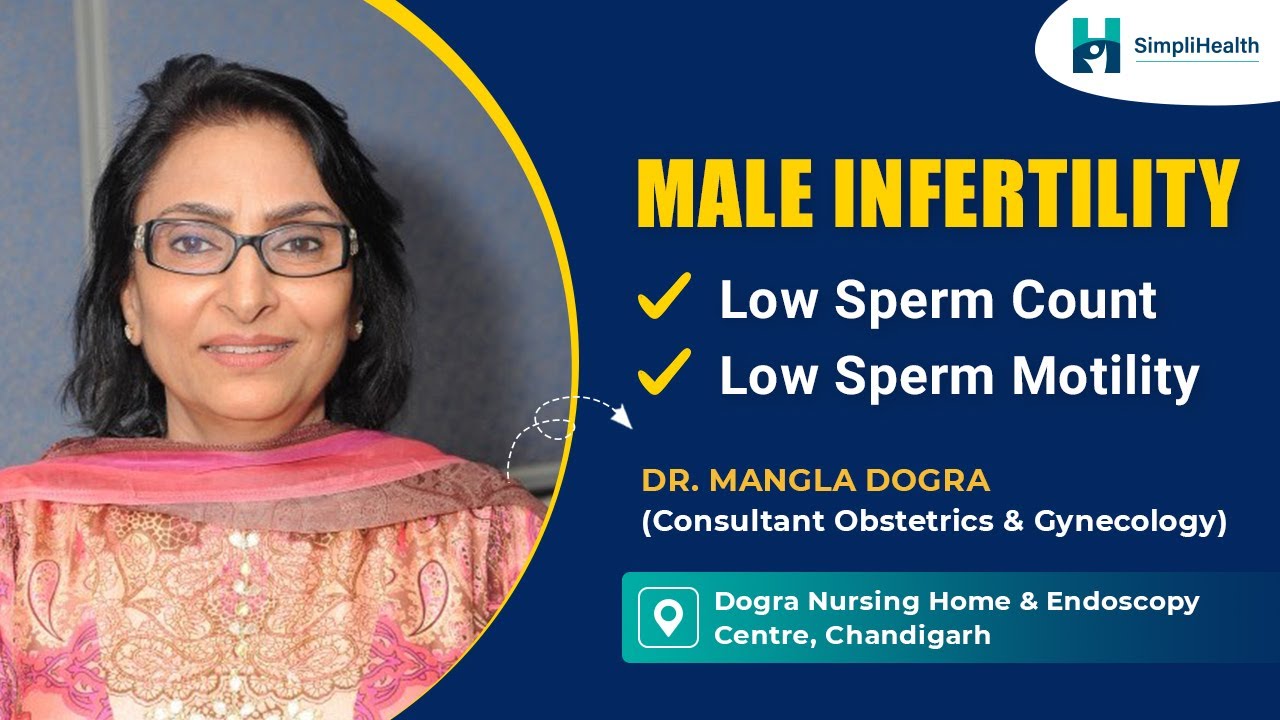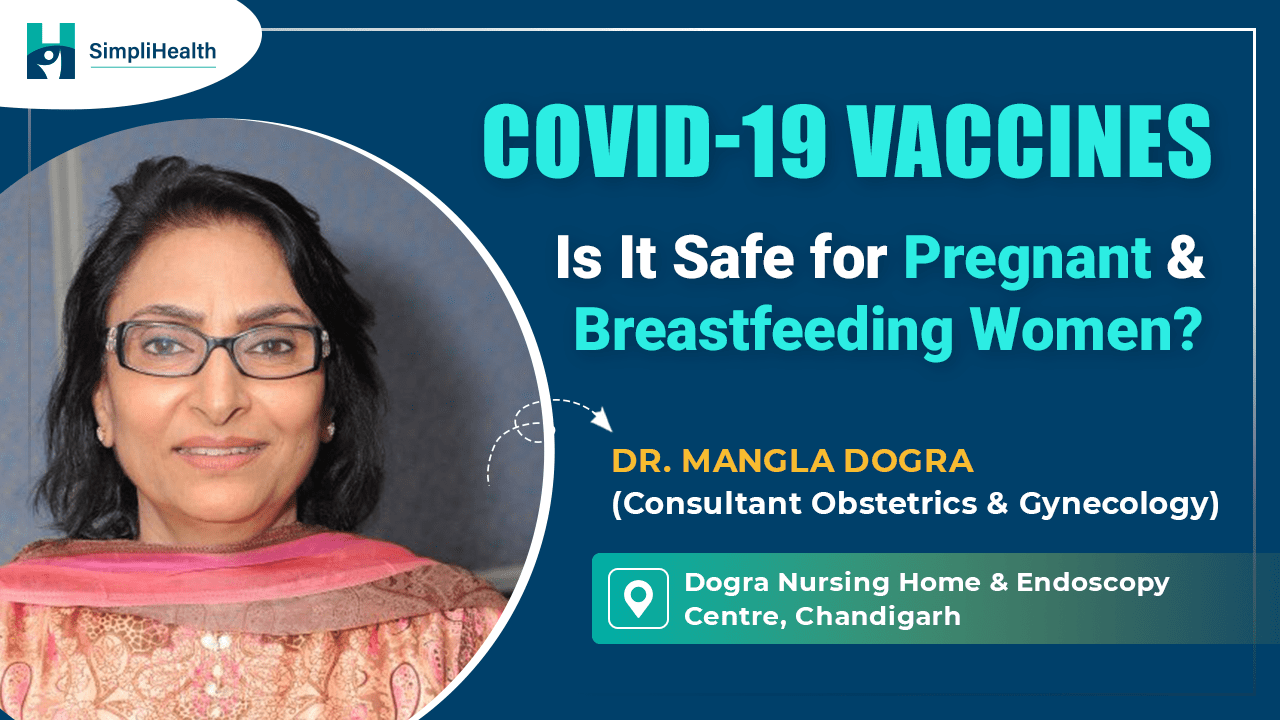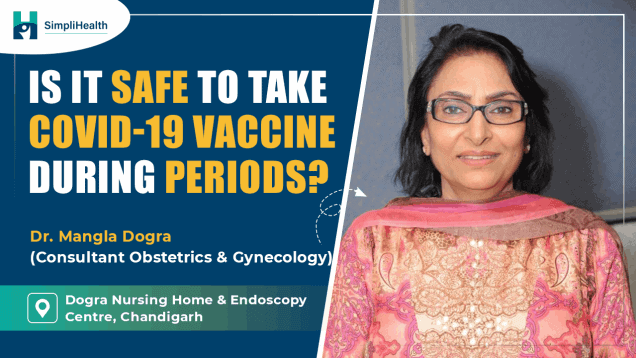Male Infertility Treatment | पुरुष बांझपन का उपचार
Dr. Mangla Dogra from Dogra Nursing Home and Endoscopy Center, Chandigarh, talks about male infertility treatment. One in every ten couples has infertility. When we say infertility, that means the couple is having frequent unprotected intercourse for the last one to two years, and still, they are not able to conceive. Out of these patients, almost 50% have one or another malefactor to contribute to this infertility. When we talk of male infertility, we are basically talking of low sperm count or sperms, which are very slow, they are not very functional, or you have some sexual problems; that you are not having a proper sexual relationship, or you have some illness, some injury, some surgery, some genetic abnormality which is contributing to these problems like low sperm count, low motility and abnormal sperm count.
What are the risk factors of male infertility?
When we are investigating a male partner for infertility, after a detailed history about any illness, any treatment they are taking, specifically about some lifestyle choices that they have made these days, any surgery on the genital organ, or any history of such genetic problem in the family where they are unable to have children in their family also then, we ask for a simple test which is called Semen Analysis so when we are doing semen analysis. Basically, the husband has to give his semen in the lab after 48 to 72 hours of sexual abstinence. So then, what are you looking forward to?
What is Azoospermia? | Male Infertility Treatment
We are looking at the sperm count, so we have a specific number of sperm that have to be there for a successful pregnancy to occur then. Are the sperms motile? Because a lot of the time you have a good number of sperms, but they are not motile. Thirdly are they morphologically, When or they are well-formed? They are not abnormal sperms because that will also lead to an inability to conceive, and or if you do conceive that they can contribute to recurrent abortion. So then generally, the question that the patients ask us when they get a report which says no sperms, so no sperms or zero sperm, is called Azoospermia. So there can be many reasons for Azoospermia, but first of all, the most common reason by enlargement is either a blockage in the reproductive tract.
What are the causes of male infertility?
So when we say there is a blockage in the reproductive tract, that means that the track that brings the sperm from the testicles to the tip of the penis is blocked somewhere. And this may be because of infections or maybe because of some surgery done on that area or maybe because of some trauma or maybe some radiation or some other trauma or chemotherapy or any anticancer drug that you have taken. Then other reasons which can cause zero sperms or azoospermia is hormonal. This hormone may be either a hormone that is produced from the testes, or it may be a hormone that may be produced in your brain, in your pituitary, in your hypothalamus, in your thyroid, or maybe in the adrenal. Some of them can be taken care of, but some cannot be taken care of. In a few conditions, you can restore the sperm from a special IVF technique, so that would be a little expensive procedure. Besides that, there are other causes for causing azoospermia.
How can male infertility be treated? | Male Infertility Treatment
So when they say, the doctor, can my azoospermia or no sperm count be taken care of? Or can it be treated?
Yes, if it is obstructed, that means there is some obstruction in the reproductive tract, then yes, it can be corrected by surgery. But not if it is hormonal or if it is a genetic factor that is contributing when it is in your genes, and you are not producing proper sperm. Those are a little difficult and are not possible to rectify. But definitely, there are a lot of modalities nowadays available for low sperm counts. So it is not that they cannot have a baby. Yes, they can have babies. Only the type of treatments may differ.
How to improve sperm count?
So the next question that normally people ask us is, Doctor, can I do something to improve my count if it is a low count?
See, first of all, the most important thing is the lifestyle choices that you have made. You need to see that if you are smoking, you need to cut down on your smoking. If you are taking alcohol, if you are taking excessive alcohol, it decreases your testosterone. Once the testosterone hormone decreases, it also decreases sperm production. Once you are taking too much alcohol especially if it is also affecting your liver, then your sexual drive, your urge to do sex also goes down. It is a multifactorial thing when the alcohol part is concerned.
What causes low sperm count and sperm motility? | Male Infertility Treatment
- Drugs: Then there are certain recreational drugs that people take these days, especially cocaine and marijuana, they can directly decrease your sperm count, and once you stop these medicines, after a long time, some amount can be recovered. So that is why we say that your lifestyle choices directly affect your sperm count.
- Hazardous occupation: If you are working in a factory, or where there are lots of solvents, paints, fumes, etc., these are. Also, you can say occupational hazards. Pesticides, Insecticides also decrease your sperm count.
- Wearing tight pants: These days wearing tight clothes, jeggings, which are part of the fashion statement. They also increase the temperature of your groin and decrease the sperm count. Keeping a laptop on your thighs is also one of the reasons that could cause decreased sperm count because it increases the temperature on your groins and thereby affecting sperm motility and sperm count.
- Sauna and hot baths: Too many saunas and hot baths also decrease sperm production, it may be temporary, but, yes, it definitely affects the sperm count as well as sperm motility. Both are affected by this.
- Medications: If you are taking medicines for diabetes for blood pressure, for thyroid, for arthritis, for chronic ailments, a certain type of ulcer drugs which one takes, as an antacid, you take it for treating acidity, they also decrease the sperm motility as well as sperm production. These are small, little two things in our day-to-day life. We do not realize it because there are no signs and symptoms but combined together, they cause a lot of sperm dysfunction in terms of mortality as well as the count.
- Steroids: These days we see a lot of these youngsters who are very conscious of their body, and they’re into bodybuilding in gyming, and take the steroid injections, they take anabolic steroids. It is very unfortunate that nobody tells them not to take these because, at that point in time, they are there. They are mainly concerned about building a strong body and body that looks like a hero’s body. But these anabolic steroids shrink the size of your testies, and your testies totally shrink over the years, and your sperm count becomes zero. They realize it only after five to 10 years of their time. You know they start these medicines at 16-17 years of life, and then once they are 25-28, 30-32, and they want to have a baby, they suddenly realize that they have no sperm count left. So I would strongly recommend that please do not take these anabolic steroids and testosterone for having a body that apparently looks very athletic and all, but apparently, what we say is, andar se wo khokhli ho gai hai.
- Cancers: These days there is a rise in cancers even in youngsters. So if you have had any surgeries around your genital area or you have taken any some radiation or have taken chemotherapy may not be chemotherapy for a genital tumor or chemotherapy for any other cancer anywhere else in the body that also affects your sperm production income in terms of sperm count as well as motility. So there is modality available that when you are going in for these therapies like chemotherapy, and you know that your sperm count may be decreased for future there are modalities available where you can actually freeze your sperm so that later on, you do not have problems in conception.
- Obesity: Obesity is also one of the very important factors for male infertility because when you are obese, your testosterone levels become low. Because of that, your urge to do sexual relationship decreases. And also otherwise by changing the hormones inside your body on the hypothalamus-pituitary access decreases sperm count.
How to improve our lifestyle and avoid infertility?
So what are you looking for? What can I do, doctor? when you say like that, you follow a healthy lifestyle you cut down on your weight, do exercises, you can down on your alcohol, say no to drugs and smoking, and make sure that you do not take hot showers, you do not put the laptop on your lap and also do not hesitate in going and discussing any sexual problems with your doctor, because sometimes there is nothing wrong. Still, it is just that you have problems like premature ejaculation or you have erection problems that can be easily taken care of. Do not feel shy and consult your doctor. This is doctor Mangla Dogra from Dogra Nursing Home, Chandigarh.


